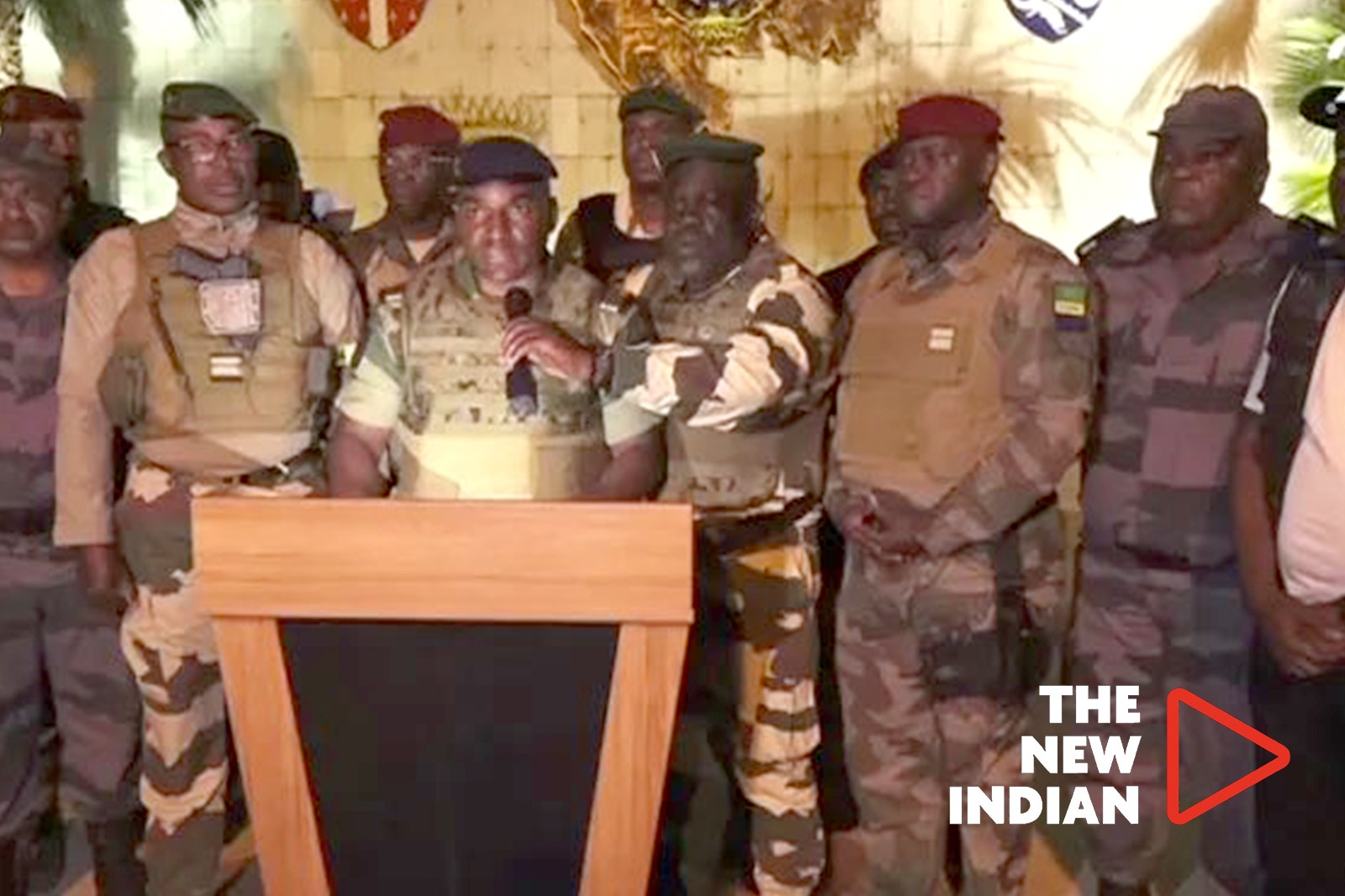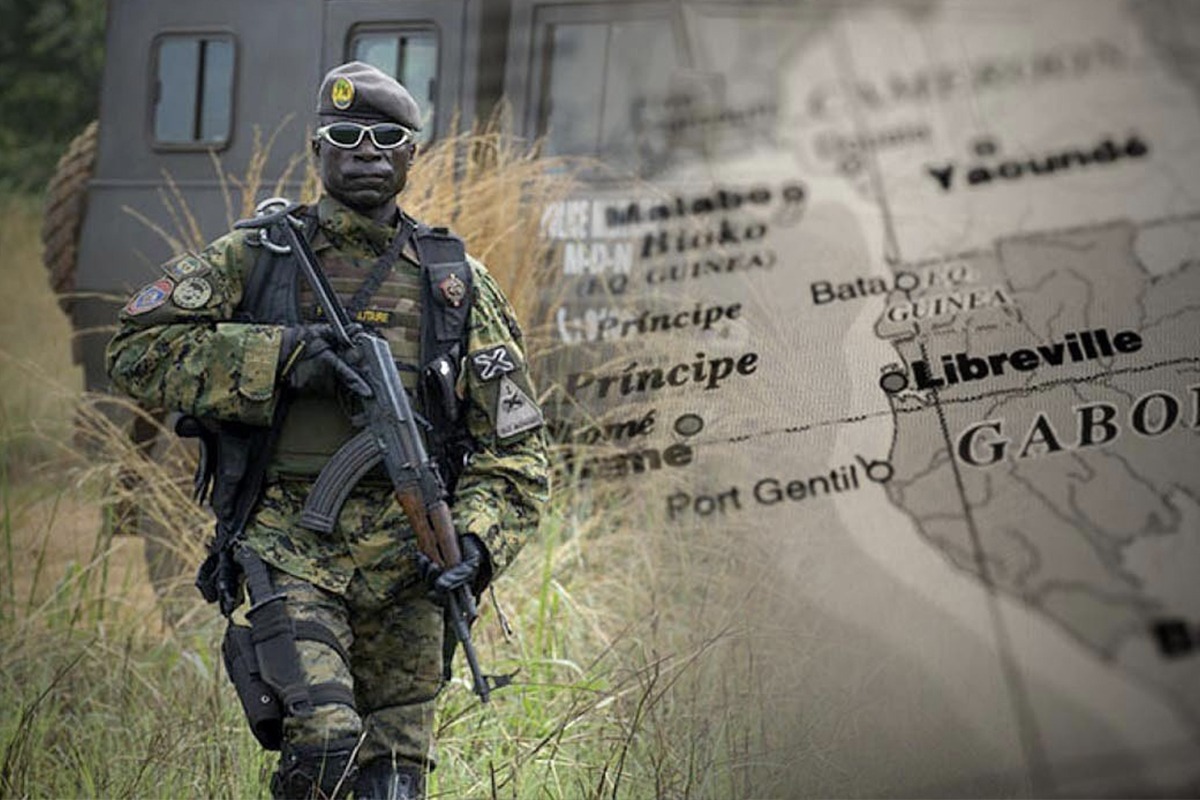A few weeks after Niger, it is the turn of yet another central African country under France-led Communauté Financière Africaine (CFA) or African Financial Community – Gabon, to experience a coup. Early on Wednesday morning, soldiers in uniform appeared on the Gabonese national TV to announce the cancellation of August 24 elections, and the dissolution of all the institutions of the republic.
This dramatic development unfolded just minutes after Gabonese election authority declared President Ali Bongo the winner for the third term. Local media reported people coming out on roads to celebrate the decision of their armed forces. Operations of select foreign media houses, like France24, Radio France Internationale (RFI), TV5 Monde – all French – remain temporarily suspended.
To understand a bit about Gabon’s leadership: President Ali Bongo Ondimba had been the head of state since 2009 – a considerably long time by most standards. He had taken over the reins from his father Omar Bongo whose rule started in 1967. Therefore, the President’s chair has remained a captive of the Bongo family for 56 years. During these five and half decades, one of the many changes effected was the amendment of the Gabonese constitution. In 2003, the constitution was amended to remove the restrictions on the number of terms a president could serve. The amendment gave powers to the president to appoint and dismiss the prime minister, Cabinet, judges of the Supreme Court, and dissolve the National Assembly.

Situated on the Atlantic coast of central Africa, the tiny nation is one of the most mineral rich regions in the continent, with deposits of manganese, uranium, gold, and diamonds. Gabon also has fairly rich reserves of oil and gas. The country’s economy revolves around mining and resource extraction. Gabon’s international relations have been strongly predicated on its colonial past – its inclusion as a CFA member, or Western conglomerates controlling its resource extraction and control.
Manganese – Gabon has the second largest manganese deposits in the world and produces more than 3 million metric tonnes every year. This is more or less under the control of COMILOG – a subsidiary of the French company ERAMET. COMILOG remains the largest company currently producing manganese in Gabon. In June 2015, it inaugurated a new factory to produce value-added manganese products in south-eastern Gabon. Pre-pandemic reports from COMILOG had set their target for ore production (2018) at 4 million tons.
Oil and Gas – Gabon used to be sub-Saharan Africa’s third largest producer of oil, besides having substantial gas reserves. Till the times the global focus remained on petroleum, Gabon’s oil resources remained under the control of Perenco (France), Shell (USA), and Total (France). The oil sector now accounts for 50% of GDP and 80% of exports, with the government and Gabon Oil Company now owning a fair share of the petroleum development of the nation.
Iron Ore – With the future of oil looking unclear, Gabon planned to diversify its economy and focused on another resource: iron ore. The country’s north-east is home to massive iron ore deposits; it is called the Belinga iron ore reserve. In 2006, the government signed an initial agreement with the China National Machinery and Equipment Import and Export Corporation for the development of the Belinga deposit. This project needed extensive infrastructure like roads, hydroelectric dam, railway, deep-water port, and was valued at $3.6 billion. But it was halted by the government citing environmental and financial concerns. Then in 2012, the government announced that it would try to reassess the volume of deposits of Belinga before awarding the concession to a mining company. The company that secured the rights temporarily was a Chinese organization – CMEC. But that changed in 2023, when Fortescue Metals Group of Australia, signed the Mining Convention for the Belinga iron ore project.
All along, as these tug of war matches between the Western bloc and China continued, Gabon remained a country with 30-40% of its people living below the poverty line. The key reason (asexplained in an earlier piece) is the same as Niger – the CFA’s web, and the resultant inability to extract the true value of Gabonese minerals. This has been compounded by the ruling dynasty and its extended family opting for harsher and harsher measures to cling on to power.
At this point, it would perhaps be safe to assume that, to remain under the CFA, to maintain cordial relations with France, and to allow all the mining and resource extraction rights to companies overwhelmingly from the western sphere, Gabon’s ‘Bongo legacy’ had to have allowed France (mostly) to control the finance and economy of the country. The rest of the recent development – the coup, and the subsequent military takeover – looks like a mirror image of what transpired in Niger.
A lot of you are probably wondering: Is Russia behind this coup? That is a fair query, given Russia’s increasing footprints around the globe. However, it is important to note here that Ali Bongo was not exactly a US favourite either. The US media maintained that the man was ‘notoriously corrupt’ and that the recently concluded election was ‘probably stolen’. Foreign Policy analyses that the regime treated “the national treasury like a private bank account, appropriating hundreds of millions of dollars in public funds for personal use…” and “the government is built…as a ‘mafia-like’ network of fake civil servants who receive salaries despite not having official jobs.”
Given US history of orchestrating regime changes, and given their recent proclivity to incapacitate their allies on the sly, Gabon, like Niger, could throw up a few surprises to us all, Russia included.
(Arindam Mukherjee is a geopolitical analyst and the author of JourneyDog Tales, The Puppeteer, and A Matter of Greed.)
Disclaimer: The views expressed are the author’s own.









